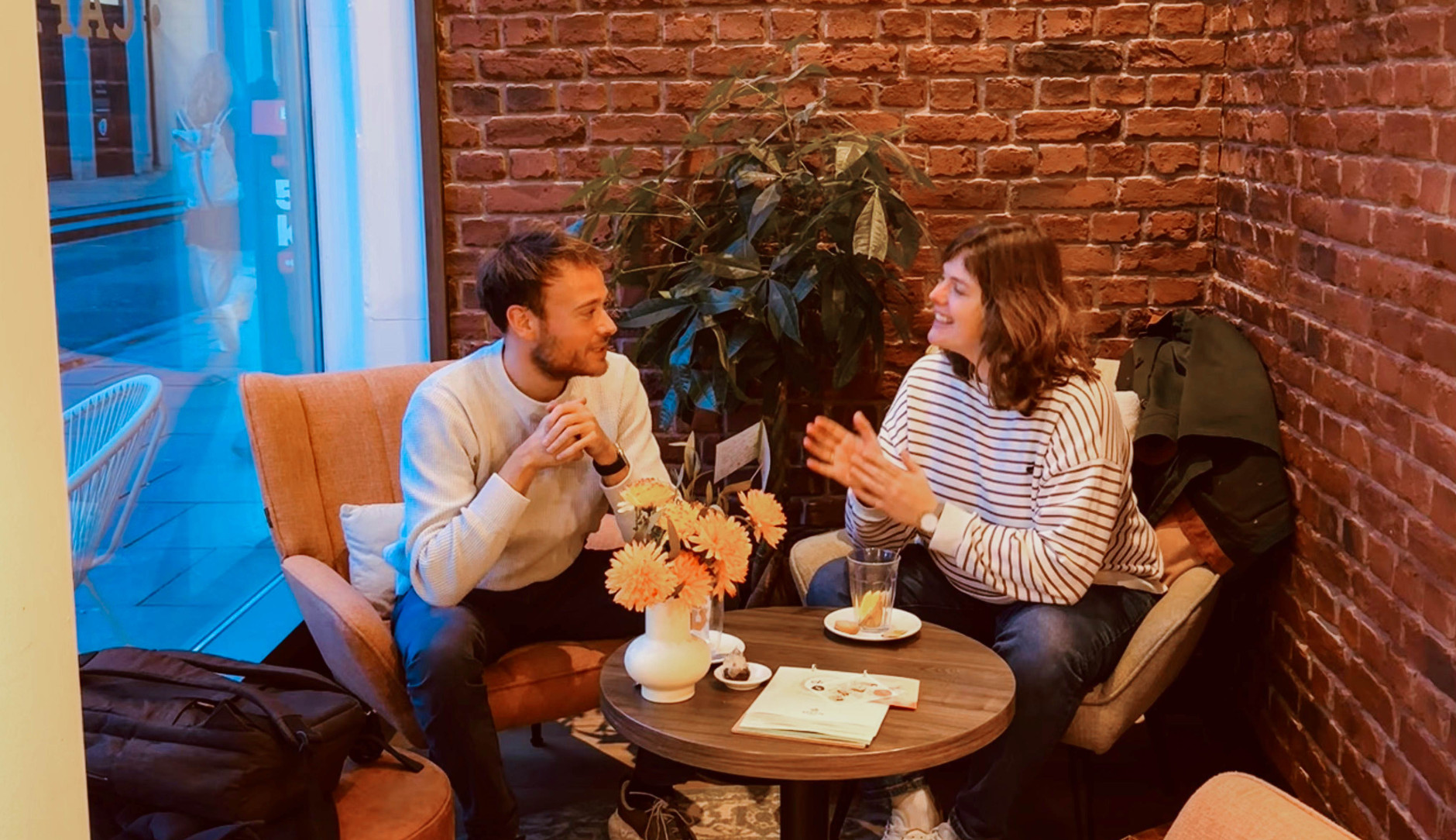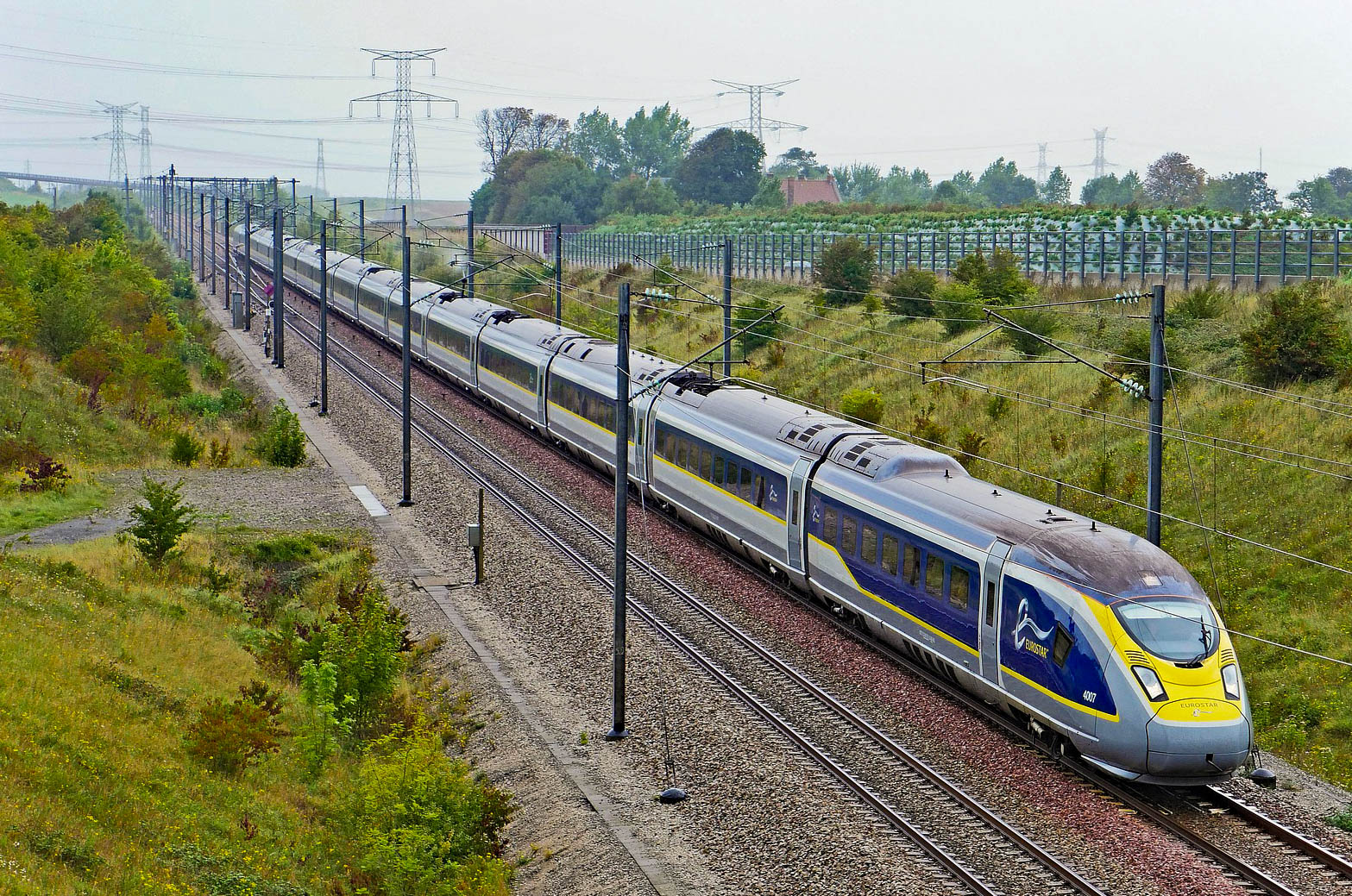This initiative makes international train travel more comfortable and cheaper
You're standing at Utrecht Central Station. You open an app, choose a destination - Paris, Berlin, or maybe Barcelona - and within a few clicks you have a ticket. That sounds like a dream, but according to Volt MP Marieke Koekkoek, it is feasible.
With her initiative paper All signals on Green, she is making international train travel more attractive. ‘It is about making the train not only greener, but also the cheapest and most comfortable choice.’

One app, one ticket
International train travel sometimes feels like a rollercoaster. One delay quickly causes a chain reaction of missed transfers. Each train company also has its own rules, booking system and fares. According to Marieke Koekkoek, this is unnecessarily complicated. ‘Why do we have a Skyscanner for flights but not for trains? Technically, it can easily be done. The problem is that companies don't want to share their data.’
The solution? Governments should demand that this data be made available. Then you can bundle all train data into one app. That transparency will create more competition and more attractive prices. With support from Europe, we can arrange this quickly.’
Faster from city to city
Besides convenience, the speed of trains also needs to increase, Marieke argues. ‘For that, we need fewer stops on international routes. That way, you can significantly reduce travel time between, say, Amsterdam and Berlin.’
As an example, Marieke mentions the train to Poland. ‘Too many changes and an awkward border crossing between Germany and Poland make the train impractical. With our group, for example, we had to opt for a 12-hour car journey for a working visit because the train ride would take more than 20 hours. Such long travel times simply do not fit into working schedules.'
But speed comes at a price. Some stations will have to be skipped, such as Hengelo, to improve travel times. ‘These are difficult choices, but they are essential to make the train more attractive,’ he says.

A level playing field
The next barrier: expensive tickets. In part, this is due to unfair competition. ‘Did you know that airlines don't pay VAT and fuel duty? While trains pay VAT as well as duty?’ asks Marieke. Costs for border controls are also skewed: at Schiphol Airport, the government pays for the border controls, while Eurostar itself has to pay for its checks. ‘That cannot be explained,’ says Marieke.
‘Almost everyone agrees: the polluter should pay,’ says Marieke. ‘But the practice is just the opposite now. The sustainable alternative gets the bill.’
Specifically, what can be done now?
According to Marieke, there is much we can address as early as 2025. ‘A European ticketing system is one of the fastest achievable improvements,’ she says. ‘The technical solutions are ready. Now it's up to politicians to cut through the red tape and offer travellers that long-awaited all-in-one travel app. That makes it surveyable, and then you are more comfortable aboard the train.’
Speed on Dutch railways can also increase in the short term. ‘In the Netherlands, high-speed trains are currently slowed down because of outdated safety systems. We are testing the new system in Zeeland. If it succeeds, we can use existing lines more efficiently and reduce journey times.’
‘Finally, we can immediately make room for more providers on the railways, for example for seasonal overnight trains to popular destinations. In winter by train to the Alps and in summer to Barcelona. With the right choices, we will already make a big difference within a few years. Let's start with that today.’